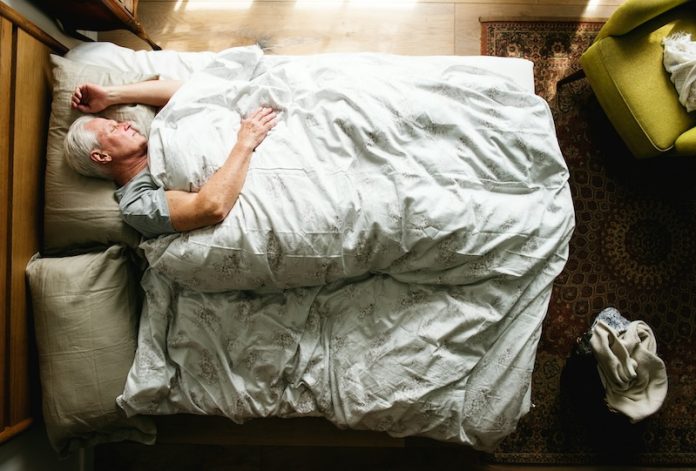
Sundowning is a common symptom in people with dementia, especially Alzheimer’s disease.
It refers to a pattern where someone becomes more confused, anxious, restless, or even angry in the late afternoon or evening. For caregivers, it can be one of the most challenging parts of the day.
Thankfully, researchers have looked into ways to help reduce sundowning symptoms, and while there is no single cure, a mix of lifestyle changes, environmental adjustments, and sometimes medication can make a big difference.
The first step in treatment often focuses on non-drug approaches. Many experts recommend keeping a regular daily routine. When the day is predictable, people with dementia often feel safer and more in control.
This includes eating meals at the same times, going for walks or doing gentle activities during the day, and avoiding naps in the late afternoon. Research shows that physical activity and exposure to natural daylight help support the body’s internal clock, which can reduce confusion at night.
Light therapy has also shown promise. Some studies have found that sitting in front of a bright light box for 30 to 60 minutes in the morning helps regulate the body’s natural sleep-wake cycle and reduces evening agitation.
Other research suggests that using soft, warm lighting in the late afternoon and avoiding harsh lights or dark shadows can create a calming atmosphere. Because sundowning may be triggered by changes in light, adjusting the lighting in the home can sometimes ease symptoms.
A calming environment is also important. Loud noises, clutter, or too many people can overwhelm someone with dementia.
Experts recommend creating a peaceful space in the evening—maybe playing soft music, closing the curtains, and offering comforting activities like folding towels or listening to familiar stories. These small actions can help the person feel more secure and less anxious.
Some people with dementia benefit from herbal remedies or supplements, though the evidence is still limited. Melatonin, a hormone that helps regulate sleep, has been studied in people with Alzheimer’s. A few small studies suggest it may improve sleep and reduce nighttime restlessness, though results are mixed.
It is best to ask a doctor before using it, as it may not be safe for everyone. Other herbs like lavender or lemon balm have been used in aromatherapy to help reduce stress, and some studies suggest these can lower agitation in people with dementia.
In some cases, doctors may suggest medications, especially if the person is at risk of hurting themselves or others. These drugs are usually considered a last resort.
Anti-anxiety medications, sleep aids, or antipsychotics might be used for a short time, but they come with serious side effects, especially in older adults. That’s why medical guidelines recommend trying non-drug approaches first and only using medication when other methods haven’t worked.
Caregiver support is also a vital part of treatment. Sundowning can be exhausting for families. Caregivers should be encouraged to take breaks, ask for help, and look after their own health. Some programs offer caregiver training to teach ways to respond calmly, redirect attention, and avoid arguments when a loved one becomes upset.
In summary, treating sundowning in dementia involves understanding the person’s needs, making the environment more soothing, and encouraging healthy routines.
While there’s no quick fix, combining simple daily habits with light exposure, gentle activities, and a peaceful setting can greatly reduce the stress of sundowning—for both the person with dementia and their family.
If you care about dementia, please read studies about how the Mediterranean diet could protect your brain health, and Vitamin B supplements could help reduce dementia risk.
For more health information, please see recent studies that high-fiber diet could help lower the dementia risk, and these antioxidants could help reduce dementia risk.
Copyright © 2025 Knowridge Science Report. All rights reserved.



